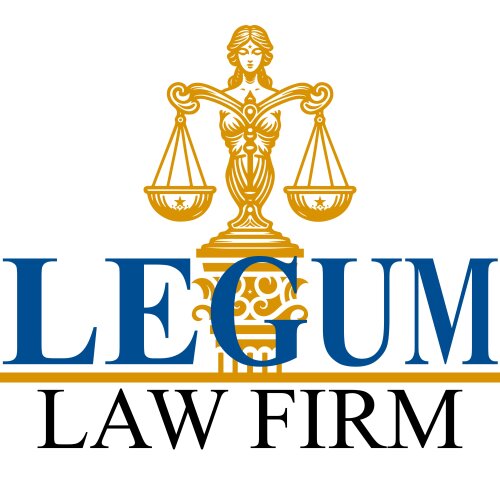Best Antitrust Litigation Lawyers in Karachi
Share your needs with us, get contacted by law firms.
Free. Takes 2 min.
List of the best lawyers in Karachi, Pakistan
About Antitrust Litigation Law in Karachi, Pakistan
Antitrust litigation in Karachi, Pakistan refers to the legal processes and court actions related to enforcing laws designed to promote fair competition and prevent anti-competitive behavior among businesses. The primary goal of antitrust law in Pakistan is to ensure that businesses operate in a free and competitive market, safeguarding consumer interests and preventing monopolies, collusion, or abuse of dominant positions. The Competition Commission of Pakistan (CCP) is the main regulatory authority overseeing the implementation of antitrust laws and investigating violations throughout the country, including Karachi, the country's largest economic hub.
Why You May Need a Lawyer
There are several scenarios where individuals or companies in Karachi may require legal representation for antitrust issues:
- You believe a competitor is engaging in unfair trading practices that harm your business.
- You are accused of violating competition laws, such as price fixing, cartel formation, or abusing a dominant market position.
- Your company is undergoing a merger or acquisition and needs to ensure compliance with antitrust regulations.
- You wish to challenge an anti-competitive agreement or contract entered into by other businesses in your sector.
- You are subject to an investigation or inquiry by the Competition Commission of Pakistan or other regulatory bodies.
- You want to understand your legal obligations and rights under Pakistan’s competition laws to prevent unintentional violations.
- You are a consumer adversely affected by monopolistic or anti-competitive practices and seek remedies.
Local Laws Overview
Antitrust law in Karachi is governed by federal legislation, most notably the Competition Act, 2010. Key aspects include:
- Prohibition of Abuse of Dominant Position: Companies with significant market power must not act in a manner that distorts competition or exploits consumers.
- Prohibition of Prohibited Agreements: Agreements or contracts that restrict competition, such as price fixing or division of markets, are illegal.
- Merger Control: Mergers and acquisitions that substantially lessen competition in the market require clearance from the Competition Commission of Pakistan.
- Imposition of Fines and Sanctions: The CCP has the authority to investigate, penalize, and order corrective measures against companies found in violation.
- Complaint and Redressal Mechanisms: Both individuals and firms can file complaints with the CCP regarding suspected anti-competitive practices.
- Right of Appeal: Parties aggrieved by CCP decisions can challenge them before the Competition Appellate Tribunal and, ultimately, higher courts.
These laws are supplemented by regulations and guidance issued by the CCP, ensuring the conduct of fair business practices in Karachi and across Pakistan.
Frequently Asked Questions
What is antitrust litigation?
Antitrust litigation involves legal action that addresses violations of laws designed to promote fair competition. This can include issues related to cartels, abuse of dominant position, unfair mergers, or other anti-competitive practices.
Which authority regulates antitrust matters in Karachi, Pakistan?
The Competition Commission of Pakistan (CCP) is responsible for the regulation, investigation, and enforcement of antitrust laws in Karachi and throughout Pakistan.
What are common examples of anti-competitive behavior?
Examples include price fixing, bid rigging, market sharing, predatory pricing, tying arrangements, and abuse of market dominance.
Can individuals as well as companies file complaints?
Yes, both individuals and businesses can file complaints with the CCP if they believe anti-competitive practices are affecting them or the market in general.
What penalties can be imposed for violating antitrust laws?
Penalties may include hefty financial fines, orders for companies to cease certain activities, cancellation of agreements, and in some cases, criminal sanctions.
Are all mergers and acquisitions subject to antitrust review?
No, only those that meet certain financial thresholds or could substantially lessen competition in the market require notification and approval from the CCP.
How does an antitrust investigation typically proceed?
After receiving a complaint or identifying a potential issue, the CCP may conduct a preliminary assessment, seek information from involved parties, issue notices, and after a full investigation, make a determination which can be appealed.
Is it mandatory to seek legal help for antitrust cases?
While not mandatory, legal advice is highly recommended due to the complex nature of antitrust laws, the technicalities involved in investigations, and the severe penalties associated with violations.
What should a business do if it receives a notice from the CCP?
A business should immediately consult a qualified antitrust lawyer who understands the local laws and procedures, and prepare a comprehensive response to the CCP notice.
How can a lawyer help in an antitrust dispute?
A lawyer can assess the merits of your case, guide you through regulatory processes, represent you before the CCP or courts, and help negotiate settlements or compliance measures.
Additional Resources
- Competition Commission of Pakistan (CCP): The main regulatory authority for competition and antitrust matters in Pakistan. They offer complaint mechanisms, guidance, and legal resources.
- Pakistan Bar Council and Sindh Bar Council: Bodies that can help you find experienced antitrust or competition lawyers in Karachi.
- Karachi Chamber of Commerce and Industry: Offers resources and legal guidance for businesses facing competition-related issues.
- Legal Aid Centers: Some NGOs and legal aid centers in Karachi provide advice or referrals for matters involving consumer protection and competition law.
Next Steps
If you require legal assistance in an antitrust litigation matter in Karachi, consider the following steps:
- Gather all relevant documentation and details about your situation, including contracts, emails, agreements, and any official notices received.
- Consult a lawyer who specializes in competition or antitrust law, preferably with experience dealing with the Competition Commission of Pakistan.
- File a formal complaint or prepare a response as needed, ensuring compliance with all procedural regulations.
- Follow your lawyer’s instructions regarding communication, evidence gathering, and interactions with regulatory authorities.
- Stay proactive during investigations or litigation, attending hearings and meeting all deadlines.
- Continually review your business practices to ensure ongoing compliance with competition laws.
Understanding antitrust law in Karachi, Pakistan can be complex. With the right legal support and informed approach, you can protect your rights or business interests effectively.
Lawzana helps you find the best lawyers and law firms in Karachi through a curated and pre-screened list of qualified legal professionals. Our platform offers rankings and detailed profiles of attorneys and law firms, allowing you to compare based on practice areas, including Antitrust Litigation, experience, and client feedback.
Each profile includes a description of the firm's areas of practice, client reviews, team members and partners, year of establishment, spoken languages, office locations, contact information, social media presence, and any published articles or resources. Most firms on our platform speak English and are experienced in both local and international legal matters.
Get a quote from top-rated law firms in Karachi, Pakistan — quickly, securely, and without unnecessary hassle.
Disclaimer:
The information provided on this page is for general informational purposes only and does not constitute legal advice. While we strive to ensure the accuracy and relevance of the content, legal information may change over time, and interpretations of the law can vary. You should always consult with a qualified legal professional for advice specific to your situation.
We disclaim all liability for actions taken or not taken based on the content of this page. If you believe any information is incorrect or outdated, please contact us, and we will review and update it where appropriate.

















